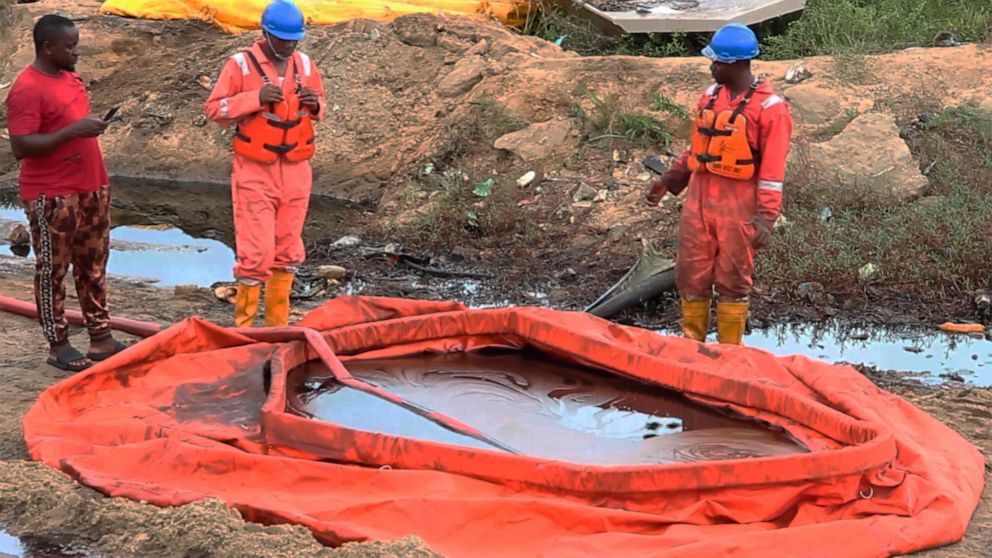
Oil spill from Shell pipeline fouls farms and a river in a long-polluted part of Nigeria
A recent oil spill at a Shell facility in Nigeria has resulted in contamination of farmland and a river, causing significant disruption to the livelihoods of fishing and farming communities in the Niger Delta. The spill originated from the Trans-Niger Pipeline operated by Shell, which traverses through the Eleme area of Ogoniland. The extent of the spill is yet to be determined, but images shared by activists show polluted land, oil-sheened water surfaces, and dead fish.
Although oil spills are not uncommon in the region due to pipeline vandalism and inadequate maintenance, activists consider this spill to be a major incident. Efforts to address the spill’s impact on farms and the Okulu River have been delayed due to mistrust and past grievances between residents and authorities.
The Niger Delta, which is rich in oil resources, has experienced severe environmental degradation, negatively impacting communities’ access to clean water, agriculture, and fishing, and increasing the risk of violence. The affected communities are demanding the restoration of the environment and compensation for their losses.
Shell is collaborating with a joint investigatory team to identify the cause and consequences of the spill, while the Nigerian government’s efforts towards a comprehensive cleanup have been criticized for their lack of progress and credibility.

